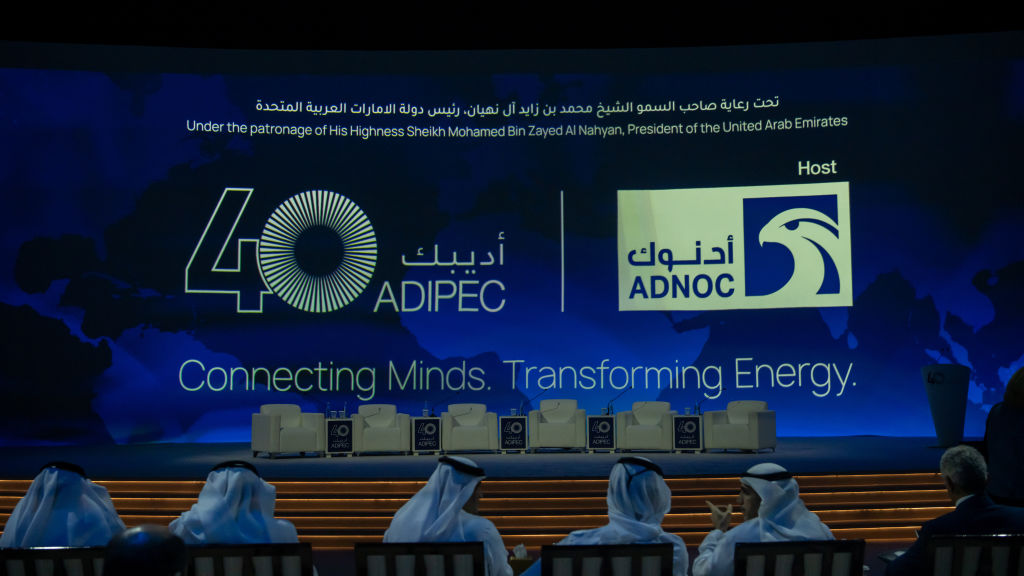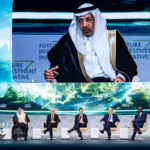Oil chiefs at ADIPEC ponder where energy market is headed
BP CEO Murray Auchincloss said he was worried about protecting personnel and safeguarding supplies because of the region's geopolitical tensions

A view of the ADIPEC conference stage in Abu Dhabi (Getty Images)
Abu Dhabi’s annual ADIPEC conference opened on Monday, bringing cabinet ministers, oil executives and investors to the UAE capital from around the world to ponder where the energy market is headed.
Kicking off the four-day event was Dr. Sultan Al Jaber, UAE Minister of Industry and Advanced Technology, Group CEO of ADNOC, Chairman of Masdar and COP28 President, who pointed to the growing power appetite of AI data centers.
“No single source of energy is going to be enough to meet this demand,” Al Jaber said in an address to the opening session at Abu Dhabi’s ADNEC hall. “We need to integrate renewable energy, nuclear energy and gas in the most cost and carbon-efficient way.”
On the eve of ADIPEC, Al Jaber hosted a gathering for industry leaders called ENACT Majlis that included Microsoft President Brad Smith, Mark Carney, the Chairman of Brookfield Asset Management who serves as U.N. Special Envoy for Climate Action and Finance; Shell CEO Wael Sawan, BP CEO Murray Auchincloss and Princess Beatrice, founder of the U.K. advisory organization BY-EQ.
Amid OPEC production cuts and pressure to shift away from fossil fuels, CEOs from some of the world’s biggest oil companies at ADIPEC rated conflict in the Middle East and friction between the U.S. and China among their top concerns.
BP CEO Murray Auchincloss said he was worried about protecting personnel and safeguarding supplies because of the geopolitical tensions in the region, Bloomberg reports.
“The conflict in the Middle East is probably the top risk of all right now,” Auchincloss said during a panel discussion on Monday. “We operate across five or six countries in the region — we are worried obviously about the security of our people and the security of energy supplies.”
Shell CEO Wael Sawan pointed to today’s U.S. elections and Donald Trump’s campaign promise to increase tariffs on China. “Longer term, what happens on the U.S.-China axis” is a concern for oil companies, Sawan said at the conference.
Oil companies are concerned, Sawan said, about energy demand, supply chains and the impact that sour U.S.-China relations “could have on the redrawing of the energy complex globally.”
UAE Minister of Energy and Infrastructure Suhail Al Mazrouei, meanwhile, said during his opening remarks at ADIPEC that his country plans to invest up to $54 billion to meet sustainable energy demand over the next six years, aiming to “decarbonise our economy and achieve net-zero emissions by 2050.”










